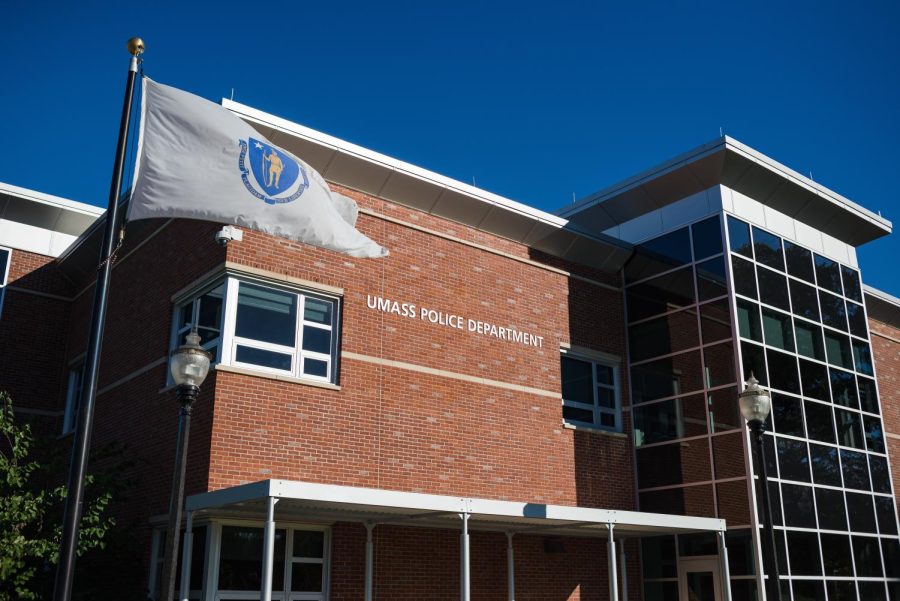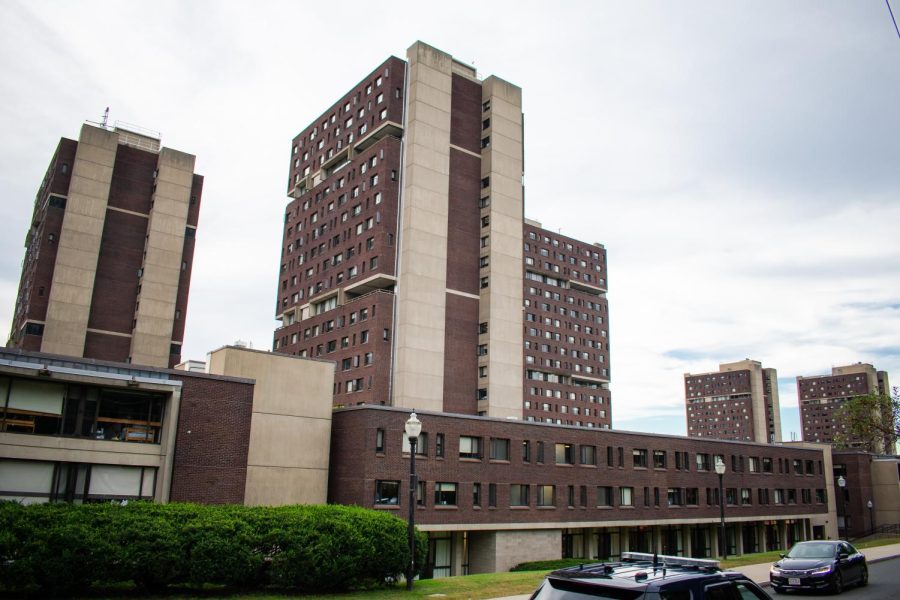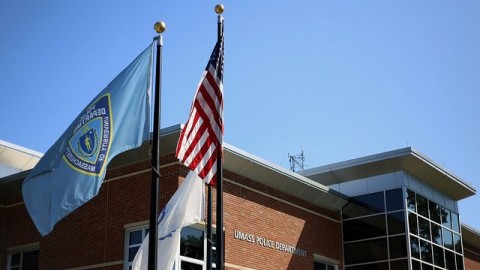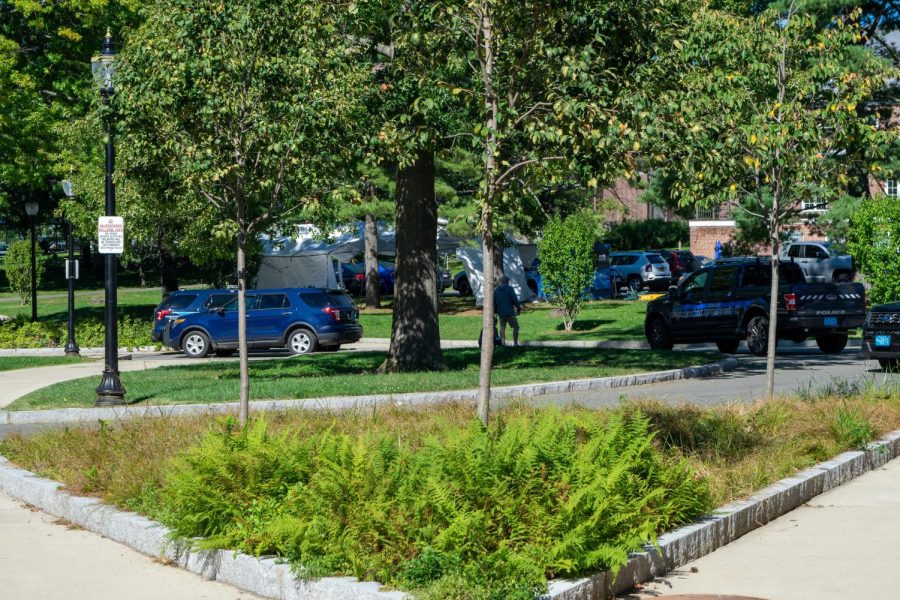
Jack Cole spends his days speaking out against current American drug policy, traveling around and talking to any group interested in hearing what he has to say about what he calls drug policy “failure” in the United States.
Cole – who spoke at the University of Massachusetts Wednesday night as part of a Cannabis Colloquium put on by the UMass Cannabis Reform Coalition – worked in the New Jersey state police department for 26 years, 14 of which were spent as an undercover narcotics officer investigating cases ranging from small street dealers to large-scale drug trafficking organizations.
With this background behind him, Cole speaks out against the very measures he once directly engaged in as a police officer through an international organization he co-founded in 2002 called Law Enforcement Against Prohibition (LEAP), which consists of members of law enforcement who advocate legalization and regulation of all drugs.
“Nothing I did in 26 years reduced the number of people using drugs in this country by a single person. The War on Drugs is not only a fatal policy, it’s self-perpetuating. Every year, it’s worse than the year before,” Cole said during the presentation to about 30 people.
Cole called his presentation “a history lesson,” weaving in personal law enforcement experience and historical facts into a slideshow mainly comprised of statistics ranging from incarceration rates to drug-induced deaths in the United States.
He began by describing what he said were outrageous incarceration rates in America. According to Cole’s data from 2008, one in every 100 Americans will serve time behind bars during their lifetime, a number backed by same-year results done by Pew Center on the States. Cole also claimed that there had been a 2,558 percent increase in incarceration of non-violent crimes in the United States since 1970, around the time President Richard Nixon declared a “War on Drugs.”
“The United States is a very impunitive country. We seem to think the only answer to everything is to lock someone up and throw the key away,” Cole said.
He also discussed how he believes racism is embedded within the current system, citing that more blacks than whites are incarcerated each year for the same crimes, and that though blacks represent only 13.5 percent of all drug users in the United States, 37 percent of all drug violators are black and 81 percent of all federal drug-related offenders are black, Cole said.
“This is warehousing people, that’s all it is,” he said of the increased incarceration rates. “The drug war has been the single most devastating dysfunctional social policy since slavery … the ones that are really being hit are people of color.”
Cole said that three years into working undercover as a narcotics officer he realized he liked the people he was hanging out with more than the people he was working for, saying that many police departments were motivated to make arrests due to increased federal money given when a certain quota of drug-related arrests were made.
“This is a numbers game. It has nothing to do with the drug problem in this country,” Cole said of these motivations, adding that the job of police should not be one of “protecting every adult from him or herself” but “to protect everyone” from more violent crimes such as murder, giving Switzerland as an ideal example of how treating drug abuse as a health issue rather than a crime decreases deaths and general crime, he said.
Cole was interactive with audience both during the discussion period and throughout his lecture. He spent the remainder of his time answering questions and getting to know the reason why people had come. Many students cited a variety of reasons for attending, including to learn more about as well as to gain a different perspective of the topic.
Chelsie Field can be reached at [email protected].












Dr. Ed Cutting • Nov 15, 2012 at 3:55 pm
All of his arguments against enforcing the drug laws, including the financial incentives to police departments, also apply to a lot of the “Violence Against Women” laws.
And one must look at all of this in the same light. What are we trying to accomplish and is it working — in both cases, is it working and what is the cost of stopping our efforts?
Malcolm Kyle • Nov 15, 2012 at 7:16 am
Ending prohibition would greatly reduce, even almost eliminate, the market in illegal narcotics, cause a reduction in the number of users and addicts, greatly curtail drug related illness and deaths, reduce societal harm from problematic abusers, and bring about an enormous reduction in the presence and influence of organized crime. The people who use drugs are our own children, our brothers, our sisters, our parents, and our neighbors. By allowing all adults safe and controlled legal access to psychoactive substances, we will not only greatly reduce the dangers for both them and ourselves but also greatly minimize the possibility of ‘peer-initiation’ and sales to minors.
If you sincerely believe that prohibition is a dangerous and counter-productive policy then you can stop helping to enforce it. You are entitled—required even—to act according to your conscience.
* It only takes one juror to prevent a guilty verdict.
* You are not lawfully required to disclose your voting intention before taking your seat on a jury.
* You are also not required to give a reason to the other jurors on your position when voting. Simply state that you find the accused not guilty!
* Jurors must understand that it is their opinion, their vote. If the Judge and the other jurors disapprove, too bad. There is no punishment for having a dissenting opinion.
“It is not only [the juror’s] right, but his duty … to find the verdict according to his own best understanding, judgment, and conscience, though in direct opposition to the direction of the court.” —John Adams
We must create what we can no longer afford to wait for and end the most destructive, dysfunctional, dishonest and racist social policy since Slavery: PLEASE VOTE TO ACQUIT!